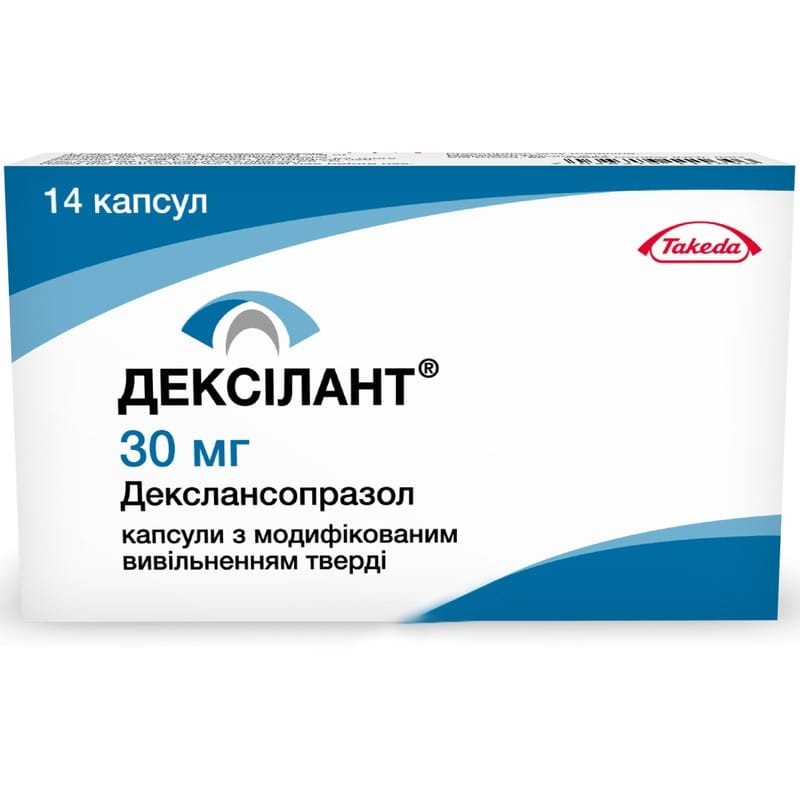



 Secure and encrypted payment processing
Secure and encrypted payment processing We ship to over 40 countries including the USA, UK, Europe, Australia and Japan
We ship to over 40 countries including the USA, UK, Europe, Australia and Japan Guaranteed refund or reship if you haven't received your order
Guaranteed refund or reship if you haven't received your orderModified-release capsules with an opaque blue cap and an opaque gray body; the TAP logo is applied on the cap with dark gray ink, and the inscription "30" is on the case. The contents of the capsules are granules from white to almost white.
The drug contains sucrose, therefore its use is not recommended for patients with hereditary fructose intolerance, glucose-galactose malabsorption or sucrose-isomaltase deficiency.
Before starting dexlansoprazole treatment, the possibility of a malignant neoplasm should be excluded, since the drug can mask the symptoms and delay the correct diagnosis.
If symptoms persist despite adequate treatment, further examination should be carried out.
When taking proton pump inhibitors, which include dexlansoprazole, an increased risk of gastrointestinal infections accompanied by diarrhea caused by bacteria of the genus Clostridium difficile, especially in hospitalized patients. This must be taken into account if, in the treatment of diarrhea, the patients condition does not improve.
In this case, patients are recommended to take the minimum effective dose of dexlansoprazole with the shortest duration of treatment.
In patients receiving high doses of the drug or during prolonged therapy with proton pump inhibitors (IPI) for a year or more, the risk of osteoporotic fractures of the bones of the thighs, hands and spine increases. Patients at risk of osteoporotic fractures should adhere to the recommended dosages (see section "Dosage and Administration").
In rare cases, patients had symptomatic and asymptomatic hypomagnesemia when taking PPI drugs for at least three months, and in most cases when taking them for a year. Symptoms of hypomagnesemia are tetany, arrhythmia, and seizures.Treatment - replenishment of magnesium and cancellation of the intake of PPI drugs. In patients who need long-term treatment or who are taking IPI drugs with digoxin or other drugs that can cause hypomagnesemia (for example, diuretics), it is necessary to control the concentration of magnesium in the blood serum before and during treatment.
In case of impaired renal function: dose adjustment in patients with impaired renal function is not required.
In case of impaired liver function: in patients with impaired liver function of moderate severity (class B but Child-Pugh), the daily dose should not exceed 30 mg of dexlansoprazole.
Clinical data on the administration of the drug in patients with severe disorders (Child-Pugh class C) are not available.
Dose adjustment in patients with impaired liver function of mild severity (Child-Pugh class A) is not required.
Use in old age: dose adjustment in elderly patients is not required.
Due to the likelihood of dizziness and visual impairment, one should refrain from driving vehicles and other mechanisms that require increased attention.